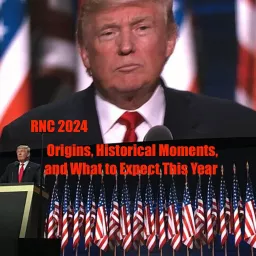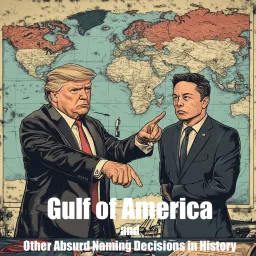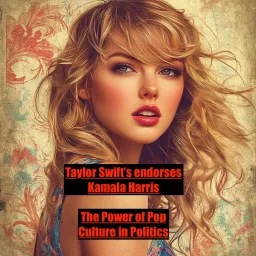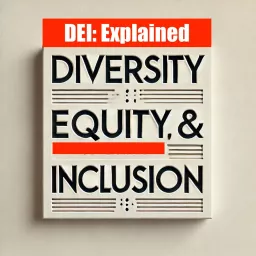Trump's A.I. Stunt for Taylor Swift
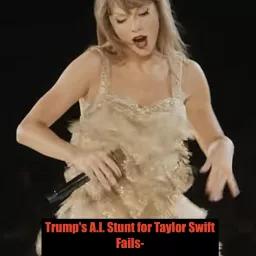
In the ever-evolving landscape of technology and politics, the recent use of AI-generated content has pushed the boundaries of what is possible—and ethical—in political campaigning. The latest controversy involves an AI-generated endorsement of former President Donald Trump, purportedly from pop icon Taylor Swift. This incident not only raises questions about the ethical use of artificial intelligence in politics but also underscores the growing potential for AI to disrupt and manipulate public opinion in unprecedented ways. The Rise of AI in Political Campaigns Artificial intelligence has been steadily infiltrating various aspects of society, from healthcare to entertainment. However, its impact on politics is perhaps one of the most significant and controversial areas of its application. AI can analyze vast amounts of data, predict voter behavior, create targeted advertisements, and even generate persuasive content that can sway public opinion. While these capabilities can be harnessed for positive outcomes, such as increasing voter engagement and participation, they also present significant risks. The use of AI-generated content in political campaigns is not entirely new. In recent years, political strategists have increasingly relied on AI to craft messages that resonate with specific demographics, using data-driven insights to tailor their approach. However, the creation of completely fabricated endorsements by public figures—such as the Taylor Swift endorsement of Trump—represents a new and troubling development. The Fake Endorsement The controversy began when a video surfaced online featuring what appeared to be Taylor Swift endorsing Donald Trump for the 2024 presidential election. The video quickly went viral, sparking outrage among Swift's fan base, known as "Swifties," many of whom are politically active and have supported progressive causes, often in direct opposition to Trump's policies. However, it didn't take long for tech-savvy viewers and fact-checkers to realize that the video was a deepfake—a highly realistic but entirely fabricated video created using artificial intelligence. The voice, facial expressions, and mannerisms in the video were eerily accurate, making it difficult for the average viewer to distinguish it from a genuine endorsement. The deepfake was created using advanced machine learning algorithms that analyze and replicate an individual's voice, appearance, and behavior. In this case, the creators of the video had used these tools to generate a version of Taylor Swift that appeared to be speaking words she never actually said. The Ethical Implications The use of AI to create deepfake videos raises serious ethical questions, particularly when it comes to political campaigns. Deepfakes have the potential to mislead voters, distort public perception, and undermine trust in democratic processes. In the case of the Taylor Swift endorsement, the video was designed to manipulate public opinion by making it appear as though a highly influential public figure was supporting a candidate she has never endorsed. This type of manipulation is not just misleading—it’s dangerous. It has the potential to sway elections, polarize public opinion, and even incite violence. As AI technology becomes more sophisticated, the line between reality and fiction will become increasingly blurred, making it more difficult for voters to discern truth from falsehood. The ethical implications of using AI-generated content in political campaigns are profound. At the core of the issue is the question of consent: Taylor Swift, or any other public figure, did not consent to have their likeness used in such a manner. This lack of consent not only violates personal rights but also has broader implications for the integrity of democratic processes. Legal and Regulatory Challenges The rise of AI-generated content and deepfakes presents a significant challenge for legal and regulatory frameworks. Current laws are often ill-equipped to handle the complexities of AI, particularly when it comes to issues of privacy, consent, and misinformation. While there have been calls to regulate the use of deepfakes, progress has been slow, and existing regulations vary widely from one jurisdiction to another. In the United States, some states have enacted laws specifically targeting deepfakes. For example, California passed a law in 2019 that makes it illegal to create or distribute deepfake videos intended to deceive voters within 60 days of an election. However, enforcement of such laws is challenging, particularly when the creators of deepfakes operate anonymously or from jurisdictions with less stringent regulations. On a federal level, there have been discussions about implementing broader regulations to address the use of AI in political campaigns. However, these discussions have been met with resistance from those who argue that such regulations could infringe on free speech rights. Balancing the need to protect democratic processes with the need to uphold constitutional rights will be a critical challenge for lawmakers in the coming years. The Role of Social Media Platforms Social media platforms play a crucial role in the dissemination of AI-generated content, including deepfakes. The viral nature of these platforms means that false information can spread rapidly, often before fact-checkers or moderators can intervene. This was the case with the Taylor Swift deepfake, which gained significant traction before it was debunked. In response to the growing threat of deepfakes, some social media platforms have implemented measures to detect and remove such content. For example, Facebook has developed AI tools to identify and flag deepfake videos, while Twitter has introduced policies to label or remove manipulated media. However, these measures are far from foolproof, and the rapid pace of technological advancement often outstrips the ability of these platforms to keep up. There is also the issue of responsibility. Social media companies have faced criticism for their role in amplifying misinformation and their sometimes inconsistent enforcement of content policies. The question of whether these platforms should be held accountable for the spread of AI-generated disinformation remains a contentious issue. The Impact on Public Trust One of the most significant consequences of the proliferation of AI-generated content is its impact on public trust. As deepfakes and other forms of manipulated media become more prevalent, the public may become increasingly skeptical of all media, even legitimate news and information. This erosion of trust can have far-reaching implications for society, contributing to political polarization, undermining confidence in institutions, and weakening the very fabric of democracy. The Taylor Swift deepfake is a prime example of how quickly trust can be eroded. Swift, who has been an outspoken advocate for various social and political causes, has a large and dedicated fan base that trusts her voice and opinions. By fabricating her endorsement of Donald Trump, the creators of the deepfake sought to exploit that trust for political gain. Even though the video was eventually debunked, the damage to public trust had already been done. The Future of AI in Politics As AI technology continues to advance, its role in politics is likely to expand. Political campaigns will increasingly rely on AI to craft targeted messages, analyze voter behavior, and generate persuasive content. However, with these advancements come significant risks, particularly when it comes to the creation and dissemination of false information. To address these risks, it will be essential for lawmakers, technologists, and society at large to engage in a serious conversation about the ethical use of AI in politics. This conversation must include discussions about consent, privacy, misinformation, and the need for robust regulatory frameworks that can keep pace with technological advancements. At the same time, there is a need for greater public awareness about the potential for AI-generated content to be used as a tool for manipulation. Education and media literacy programs can help equip the public with the skills they need to critically evaluate the content they encounter online and to recognize when they might be the target of disinformation. Conclusion The AI-generated Taylor Swift endorsement of Donald Trump is a stark reminder of the power and potential dangers of artificial intelligence in the realm of politics. As AI technology continues to evolve, it will bring with it both opportunities and challenges for democratic processes. While AI has the potential to enhance political campaigns and increase voter engagement, it also has the potential to be used for more sinister purposes, such as spreading misinformation and manipulating public opinion. To safeguard the integrity of our democratic institutions, it is imperative that we develop and enforce ethical standards for the use of AI in politics. This will require a coordinated effort from policymakers, technology companies, and civil society to ensure that AI is used responsibly and transparently. As we move forward into this new frontier of political campaigning, the lessons learned from incidents like the Taylor Swift deepfake will be crucial in shaping the future of AI and its role in our democracy. The challenge will be to harness the power of AI for good while mitigating the risks it poses to truth, trust, and the democratic process itself. Thanks for listening and remember to like and share wherever you get your podcasts.




